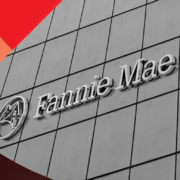Real estate favors those who value risk. An investor’s willingness to take a calculated risk separates the good from the great. And today’s guest, Grace Gudenkauf, is definitely on her way to greatness. This ambitious 24-year-old has managed to get seventeen doors between eight properties under her belt in less than a year, and she shows no signs of slowing down.
Ashley:
This is Real Estate Rookie, episode 161.
Grace:
Well, how are you going to get loans if you don’t have a W2? You’re never going to be able to buy anything. And I feel like that’s a huge myth and just not true. Yes, you have to sacrifice a little bit, maybe some points, maybe higher interest rate, but am I going to let that completely stop me? No.
Ashley:
My name is Ashley Kehr and I have a story. Today, I am actually in Seattle at the Heaton Dainard office. So if anybody is looking to invest in Seattle, I highly recommend checking them out. No, this is not a paid advertisement, I’m just using their office for free to record a podcast and playing with the cool things they have in the office. So if you guys aren’t watching the sun, you-
Tony:
And apparently they have medieval… Yeah. Ashley’s holding the story that looks like it’s from Game of Thrones or something right now. I’m very nervous for all the people in that office with you.
Ashley:
I know. So I am here with my cohost, Tony Robinson. Tony, you have any weapons in your office?
Tony:
The only weapon I’ve got is, I don’t know, I’ve got a gallon sized water bottle next to me and a fork that I use to eat my lunch, so I could maybe do some damage with that.
Ashley:
But you can waterboard somebody.
Tony:
Yeah. So for those who are joining us for the first time, we’re actually not a podcast about medieval warfare and weapons of times past, we’re real estate focused podcast that shows new investors how to get started. We give you the inspiration, the information, the education you need to get started in real estate investing. So Ashley, I’m excited, you’re like a globetrotter right now. You were in Tennessee with me last week. Now three days later, you’re in Seattle. What’s next on the agenda? Where are you going to next?
Ashley:
Next, I think I’m actually coming back to Seattle at the end of the month, but that is super exciting moment for me today. I am investing in my first out-of-state property. So here in Seattle, I’m going to be doing a house flip and partnering with James Dainard from Heaton Dainard. So that’s why I’m out here doing my first look at the property, going over the rehab for it and writing a check.
Tony:
Awesome. Are you going to share on your Story what the property looks like? Yeah? I’m excited to see what-
Ashley:
Oh yeah, yeah, definitely. And it’s actually not that bad. I’ve toured a couple of properties here in Seattle before that’ve been like hoarder houses and different things like that. Actually, James was just showing us a video of a house he bought that had actually been on an episode of Hoarders. So if you guys Google Seattle hoarder house, you guys might be able to watch that episode on A&E.
Tony:
Yeah. Well, that’s exciting. Actually, I’m excited to see your first out-of-state flip. How often do you think you’ll have to go back to Seattle to manage this project?
Ashley:
So I’m coming back during the middle of rehab, and then I’m coming back towards the end of it when it gets listed for sale to see the finished product.
Tony:
You make it sound so easy. You make it sound so easy.
Ashley:
That’s our duty, right? We’ll see. We’ll see how it goes. I’ll keep everyone updated. You can follow me on Instagram, @wealthfromrentals and check out James at JDainFlips on Instagram too, to see this journey of our first joint venture together.
Tony:
Yeah. I’m excited for you guys.
Ashley:
So Tony, what’s new with you?
Tony:
Yeah. I feel like I don’t have an update as cool as yours. I definitely don’t have any medieval weapons in my office with me right now. Well, what’s new with me? We’re actually closing on another flip tomorrow, so that’s exciting. We’re trying to ramp up that part of our business. And again, we’re still selling these short-term rental turnkey flips. So that way, whoever buys them can take them live on day one. So excited to grow that part of our business. And we’ve actually just added two new folks to our team as well, to the Alpha Geek Capital team. So shout out to Warren and Brian. They’re coming on to help us with acquisitions. So as we ramp up our need for deal flow, they’re going to run point on that. So exciting week for us at the Alpha Geek Capital team.
Ashley:
Yeah, definitely. Definitely adding more team members, taking some work off your shoulders and hopefully providing you a ton of value and exciting for them to get to work with you and learn from you too.
Tony:
Yeah. I hope it’s a mutually beneficial relationship. But yeah, I think things are good. The best part is, I got to hang out with Ashley Kehr for two days, three days in Tennessee, so that’s always a good time.
Ashley:
Yeah, that was so fun. And it was awesome to finally get to see one of your properties in person and get to stay there in the cabin, so thank you very much for having me.
Tony:
Yeah, of course. So your bill for the lodging, it’ll be coming to you soon. So just keep an eye on your inbox.
Ashley:
I’ll make sure to leave a review too.
Tony:
All right. So should we get into today’s guest? Today, we had a Grace Gudenkauf on the podcast. Grace is an investor base out of Cedar Falls, Iowa. I really in enjoyed this episode, she’s a younger investor, 24 years old, just recently graduated from college, I think she said like a year and a half ago, and she’s scaled to almost 20 units in less than a year, which is super, super cool, super amazing. And so she breaks down what that journey looks like. One of my favorite parts of this episode was when she talks about her decision to leave her job and what her thought process was behind that. So I really enjoyed that part of the conversation.
Ashley:
That was my favorite part too. And just how she gives some actionable steps, if you are thinking of doing the same thing, putting your job and jumping into real estate full time, here’s some things you should think about before you actually do that. So a great episode. Let’s get into it.
Grace, welcome to the show. Thank you so much for joining us. Can you start off with telling everyone a little bit about yourself and how you got started in real estate?
Grace:
Yes. Thank you for having me. I’m super excited. I am Grace Gudenkauf. I’m a 24-year-old investor from Cedar Rapids, Iowa, where I was born and raised. And I got started in real estate last fall because my boyfriend had flipped a house while I was still in college, and I had just started my full-time job and I was really looking for ways to maximize my new salary, and it fell into my lap.
Ashley:
So Grace, what did you think when he flipped a house? Was real estate investing anything you even knew about? And how did that conversation happen?
Grace:
I just remember doing like purchase price plus rehab, and then the different with the sale price and being like, “Ooh, that’s good.” I had no clue all the things that went into it. And I went and I painted some. I remember thinking like, this is a good idea and I’ll do it eventually, but it wasn’t like alarm bells going off yet.
Ashley:
Before we dig into too much of your story, can you just give us real quick an overview of your portfolio, what it looks like today and what kind of investing you have done?
Grace:
Yeah. So all of my units are in Cedar Rapids, Iowa. We have 17 doors between I think, eight properties, some single families, some duplexes and a couple fourplexes. And we’ve done all over the place huge rehabs, cosmetic, rent to own, creative, pretty much everything we’ve done except for flipping and short-term rentals.
Tony:
So you said that you’re at 17 doors across several different properties, but you said you started last fall, so like a little over a year into this. Is that timeline correct?
Grace:
Yes. We bought our first single family rental February of 2021.
Tony:
Wow. That’s awesome. What a great growth. And not even a year. It hasn’t even been a whole year yet. So you keep saying we, Grace, so who is this we that you’re speaking of?
Grace:
Yes. So we is my, I say my business partner slash life partner, Brant, and that’s my boyfriend. And we’ve partnered together on everything.
Tony:
Got you. So let’s talk a little bit more about this journey, because to go from falling into this first flip that your boyfriend did to now having a pretty sizable portfolio, there’s got to be a lot that happens in 11 months to be able to make that work. So after this first flip, what happens after that? Are you guys just like you’re on fire? I guess just walk us through that journey of what happens after that first flip.
Grace:
Yeah. So he got the money from that first flip, and I think he was looking for the next thing to do. And I was like, “Well, it’s going to be winter in Iowa, so let’s do a flip together. I’ve got nothing else to do, literally.” And we ended up actually buying something together. We put 20% down and we were going to BRRRR a full gut property. And so we started that first one in February and then took us six months, and we had to DIY the whole thing because we didn’t have… We had some money, but not like a crazy amount of money. And then from there, I was just like, “This is such a good idea. I have to keep doing this.” And we just decided that we’ll never let the money stop us, we will always get the deal and then find the money. And it’s turned into where we’re at now.
Tony:
I want to pause in that one point, Grace, because what you said, I think was very profound, I want to make sure we don’t pass over that. But you said that you’ll never let the money stop you. And if you find a good deal, you’re going to get it under contract and you’ll figure it out afterwards. I think there’s a lot of people who are afraid to go down that same path because they might see a good deal, but there’s too afraid to lock it up because they haven’t figured out the financing.
So just walk us through your thought process on, A, how you haven’t let that fear stop you. And then B, how are you funding all of these deals? Because I think when someone hears you go from zero to almost 20 units in less than a year, people can’t comprehend how you’re able to finance that. So start with how you broke past that fear, and then give us some tactical knowledge on how you actually made it happen.
Grace:
Of course. If somebody scales that quickly in that short amount of time, it’s really important to understand that there are other partners, private money lenders, whatever equity partners out there that are making that happen more than likely. And for us, that’s absolutely true. I remember I probably heard it from a BiggerPockets podcast, someone saying, “I’m not going to let the money stop me. I’m going to find it.” And I just like regurgitated that. And it started just with the very next deal we did, was two duplexes.
And they were 255,000, so that would’ve been like 50,000 and of down payment and we didn’t have that. So I called my small local bank that probably had like 30 employees, and I went straight to the VP and I was like, “Hey, this is a really good deal, I’ve banked here forever. Let me put 10% down.” And he basically got the underwriter on the phone and they decided right then and there that they’d let us put 10% down. I was like, “The tenants have been here forever. They’ve never missed rent payment. These are really worth more like 300. So you have no risk.”
And then I went and I partnered with Brant and my sister to split that 10% down payment three ways. And then each one moving forward was just all different, and I feel like I figured it out as I went.
Ashley:
That is so awesome that you went to the VP of the bank, and that’s the power of these small local banks. And that you asked… What’s the worst they can say? Is no. But putting yourself out there and asking those questions. And not even asking, you knew exactly what you needed, what you wanted, but even going to these banks and asking, “What can you offer me?” It obviously was a very powerful tool for you and kept you moving forward. So when you set up this new partnership with your boyfriend and your sister, what did that look like? Did you guys put together an LLC? Did you keep it in your personal name? How did you structure that?
Grace:
So we should have put it in an LLC, but we actually took title as tenants in common with two thirds being Brant and I’s LLC and the other third being her personal name. I think we might have done that because we needed her W2 to help qualify for that. I can’t quite remember, or maybe it was timing and we just didn’t get our stuff together to create a new LLC. That was the last one that went into any personal names, and from then on out, we’ve always put everything into an LLC.
Ashley:
Can you explain for anyone that doesn’t know the difference between putting in your personal name or putting it in LLC, what are the risks and what are the reasons that you have transitioned from personal name to LLC?
Grace:
Yeah, so we really wanted to get our commercial lending, I guess, relationship started, so we just skipped the whole residential loans, which are going to give you 30-year terms and depend on your W2 and your credit score and be just super favorable. You probably also are going to have to put 20 to 30% down, whereas like I said, we didn’t have a ton of money, so we knew that we needed to stretch basically every give that we could get. So we went to lower down payment commercial loans where we could do 10 or 20%.
Granted, they’re going to be a little higher interest rate and they’re going to be less favorable in terms of how long the loan is. So residential loans are going to be a lot more favorable in terms of interest rate and amortization and they’re going to depend on your credit score, your W2 and all of the personal information about you. whereas a commercial loan is going to be more focused on the property itself and it’s probably going to be higher interest and less favorable in terms of amortization, but they’re more flexible in terms of down payment.
Tony:
Can we just drill down a little bit on the commercial lending process? I think just one comment to make is that it’s definitely not necessary as a first time investor to set up an LLC and go the commercial route. But depending on your unique situation, sometimes it may make more sense. So I just want to caution folks that are listening, that, don’t feel like you can’t go out and get that first deal until you get an LLC and have the commercial lending set up. You can go out and still do it in your personal name. The vast majority of the deals that I’m in, it’s in my personal name and one of my partner’s personal name, and we still have been able to scale our portfolio.
But Grace, I want to talk a little bit about what that commercial lending process looks like, because I think a lot of folks might have some interest in that. So when you say that it doesn’t depend on your W2 or it doesn’t depend on some other things, what exactly is it that they’re using to qualify a commercial loan versus like a loan in someone’s personal name? What documentation do you need to provide? What’s the proof they look for to say, “Okay, this is a good loan”?
Grace:
When I tell my lender I want a new loan, she wants to know the purchase price, how long it’s going to take, the rehab. And then most importantly, what it’s going to appraise for and what it’s going to rent for if I’m keeping it. Because the bank that I work with particularly is also a small local bank, they’re very investor friendly, they’re known for being investor friendly. And they always want to know what is the debt service coverage ratio. I can never remember, the DSCR, whatever.
Basically, what’s the ratio of your rent to your debt payment? And if it looks good, the loan’s good. They don’t care if I have my W2 or if I have an 800 credit score or 600 credit score. They want to know, “Can this deal stand on its own legs?”
Tony:
Can we also talk about the terms that are offered to you with a commercial loan? With primary residents, you can go out, get a really low interest rate, 30-year fixed term. What kind of terms and rates are you seeing on the commercial side?
Grace:
Yeah. Again, not as favorable, but we’re seeing four to 5% with a 5/1 ARM, which I think is pretty standard. Also, that could be good or bad depending on what your end game is. If your end game with the property is only a few years, it doesn’t really matter that it’s an adjustable rate mortgage or if it’s a 30-year loan, because you know you’re either going to 1031 it, sell it or whatever.
Ashley:
Tony, just real quick, what are you seeing on the residential side right now?
Tony:
On our most recent short-term rental purchase, we closed that at think at 3.4% or something like that. And that’s a 30-year fix. Honestly, not a whole heck of a lot lower than four or even 5%. So we’re talking about few hundred dollars per month difference in mortgage payments, so not a huge deal breaker.
Grace:
The other important thing though is since neither Brant, nor I have a W2, a huge thing was, “Oh, how are you going to get loans if you don’t have a W2? You’re never going to be able to buy anything.” And I feel like that’s a huge myth and just not true. Yes, you have to sacrifice a little bit on your 30 year fix versus 5/1 ARM and maybe some points, maybe higher interest rate. But am I going to let that completely stop me? No.
Ashley:
And if the numbers still work, it can still be a good deal even though you’re not paying a lower interest rate, like another investor, that barrier of entry, at least like getting yourself into the deal and making money off of it. Even if it’s a huge amount, you’re still getting your foot in the door and making money instead of having nothing, because you never took advantage of that opportunity and even invested at all. So having some of that opportunity to invest in the property… And that’s almost like the same as taking on a partner, owning 50% of the property than owning 0% of the property is still better.
Grace:
And that was like a huge thing that I initially struggled with as well, is, “I don’t want partners.” Well, okay then, exactly. Like you said, Ashley, 100% of nothing is still nothing.
Tony:
One follow up for me, Grace, you mentioned the 5/1 ARM. Can you define what that means for folks that aren’t familiar with it and how that differs from a traditional mortgage?
Grace:
Yes. So the 5/1 ARM means that for five years, you have your fixed rate, like I said, we’re seeing between four and 5%. And then after that, every year, it can be adjusted, hence adjustable rate mortgage. And I heard, I think one time on a BiggerPockets Podcast, that you can look in the fine print and see if there’s a maximum interest rate that it can hit and just use that number, if your nervous about that, to see if your deal still works. Unfortunately, I could not find that in my deals, but if you can, that’s just another tool to use to not be scared of those types of mortgages.
Ashley:
And if you do really have a good deal, you shouldn’t have a problem being able to refinance your property too once that those five years up and go into another five year fixed rate loan too. So Grace, what’s next for you guys? Your boyfriend did the flip and then you guys did the BRRRR property. What happens from there? How do you gain that traction to keep buying more and more?
Grace:
Yeah, I remember we just had a conversation where like, “Should we just keep buying? Should we just see if we can do it?” And we’re like, “Yeah, okay. Let’s do it.” And that was so scary and so ludicrous, but we’re like, “Whatever, let’s do it.”
Ashley:
Did you have a job at this point? Were you working when you were done with school?
Grace:
Yes. So after I graduated college, I was working as an engineer for an aerospace company, and I was working remotely out of Iowa. I bought my personal residence and the BRRRR and the two duplexes. And right around this time, like spring 2021, I started to realize, if I go back into the office, which is California, San Diego, I will never be able to do real estate. If I move to San Diego, I will be able to maybe buy a garage. Iowa is so low cost of entry, it’s just so easy to make a dent in this market. So I decided since I couldn’t continue to work remotely forever, that I was just going to make the jump and just try real estate and just see where the heck it went.
Ashley:
So how many properties did you have at that point where you decided to just quit?
Grace:
I think five units, but with four of those units being shared between my boyfriend and my sister. So I really did not have that much experience, but I thought, “If I’m going to try this, it should be now I don’t have kids, I don’t have pets, I don’t have student loans and all these other obligations. If I’m going to fail, now’s the time to fail, not down the road when I have way more people, depending on me.” And right now, if I really needed to, I could move into my parents’ basement and would that be worth the risk for me to possibly succeed working for myself? Absolutely. So that’s how I decided to go for it, which seemed so crazy, and it probably was
Ashley:
For someone listening now, that’s maybe is in that same dilemma that you were like, you don’t want to go into the office, you don’t want to be stuck at your you W2 job anymore and they’re thinking of quitting and going full time into real estate, what are a couple action items or things they should do before they decide to actually quit their job? Did you have some money in savings? Did you write out some goals, have a game plan before you actually decided to quit?
Grace:
Yeah. What I did was I sat down and I literally have it right here. I wrote out, what is the absolute worst thing that could happen? And I broke it up into bullet points of, okay, what happens if I can’t afford my mortgage? Okay, I move out to my parents and now I have a cash flowing property. Cool. What have happens if I fail publicly? Okay. I have to admit to like my family and friends that I failed. Okay. That’s not that huge of a deal, I’ll take that risk. And I just went down the line of everything that could go wrong and I looked at it and I was like, “I can handle that. That’s not that crazy. I can handle that. That’s worth the risk of it possibly all working out.” So that’s how I decided to do it.
Tony:
And Ashley, it reminds me of a conversation we had, I think it was with Nick Cooley, who was a guest on one of the previous episodes. And we were talking about the same thing about how there’s so much fear around trying to work for yourself and trying to become an entrepreneur and doing this thing on your own. But a lot of times the worst case scenario is that you end up like the vast majority of people in America today. If you failed, if I failed, if Ashley failed, what would we do? We’d probably just go back and get a job, Get a nine-to-five and just grind it out like everybody else.
And if that’s the worst case scenario, why not take the risk? Why I not see if you can actually make it happen? So kudos to you, Grace, for having that courage in yourself and in your abilities to take that leap. And I guess just really quickly before we move on, how has it been? You’re almost a year removed from having to get up and go to a job every day, what does that feel like?
Grace:
That’s so funny because the other day, Brent and I were at Home Depot, it was in the middle of the day and we’re like, “It’s so crazy that we’re not in an office right now.” Just running around, moving fridges from properties and all that stuff, but it’s been awesome. I love problem solving, and real estate is just like a giant problem to solve with each deal and figuring out how to get it done and make money. And I’ve been able to do so many more things that I wouldn’t have been able to do if I stayed at my job. So it’s been awesome. A lot more stress, a lot more work, but it’s been great.
Tony:
And Nick Cooley was episode 109 if one of you guys that wondering where that came from. Nick’s an awesome guy, had a lot of good times with Nick. So check out that episode if you haven’t yet.
Ashley:
Tony, I have Darrel here, sitting here listening, doing some work and he wanted to correct you and say it was episode 109-ner
Tony:
Well, excuse me. Yes, 109-ner
Ashley:
Okay. Grace, do you have a deal for us today that we could go in and do a rookie review on and just give us the numbers on it, what exactly everything about the property, but strategy, things like that?
Grace:
Yes. And I think I’m going to do my very first deal that we did.
Ashley:
Okay, awesome. So we’re just going to ask you some rapid fire questions first and then you can go into the story of the deal. What strategy was this deal?
Grace:
BRRRR strategy.
Ashley:
Okay. And was it a single family, two family, three family?
Grace:
It was a single family home in Cedar Rapids, Iowa.
Ashley:
Okay. And what was the purchase price?
Grace:
82,500.
Ashley:
And how was the rehab?
Grace:
36,000.
Ashley:
Okay. And then you ended up refinancing this property. Well first, how did you pay for it? How did you fund the deal, and then did you refinance it?
Grace:
Yep. We put 20% down. Everyone says you need to do BRRRR with cash, but like I said, “We didn’t have the full cash. So we started with the bank loan and we refinanced it, cash out refinanced, six months later and it appraised for 185,000. So we were able to keep 30% equity in the deal. We refined 130,000, which paid off the purchase price, the rehab, and I think put seven or eight grand in our pockets as well. And then the rent, it ended up renting for 1,549, and I believe we cash flow around $350 on this.
Ashley:
Awesome. Congratulations. And on your first deal too.
Tony:
Right. Can we celebrate that because how long did this deal take you really quickly? Just ballpark.
Grace:
It did take six months because we DIYed the entire gut, full gut.
Tony:
It’s six months of your life and you get back all of your capital plus $7,000. So you got paid almost 1,000 bucks a month for doing the work, and now you have this property that’s going to give you, you said $300 a month in cash flow?
Grace:
About 350.
Tony:
350 month in cash flow and perpetuity forever with zero money left in the deal. And that’s the beauty of real estate investing is that you can get creative, you can put in the hard work, and if you do those things, you get rewarded. And 350 might not sound like a lot, but if you can replicate that five, 10, 20, 30 times, that adds up, and especially if you’re recycling that same capital over and over, and over again. So what an amazing job.
Grace:
Thanks. And it’s so easy to look back on it and be like, “Yeah, that was easy. Those numbers were awesome.” But man, it was hard work. Like I said, we DIYed literally everything. And I always remember the story, Brent came home one day and he must have had a bad day, and I’ll never forget that he goes, “We should just sell the property and cut our losses,” because of some unexpected rehab that he found. And I just remember thinking like, “Okay, he’s probably being dramatic, it’s not that bad.” And then look how it ended up. There were so many highs and lows, but yeah, it was worth in the end.
Ashley:
I really want to go into the rehab portion, but first before we do that, how did you find this deal?
Grace:
Yes. We went driving for dollars and I saw for rent sign. So I called it and I quickly realized that it was an investor because he didn’t know the house he was talking about and I could tell he probably has multiple. So then I pretended to be an investor, granted I have never invested in my life. And I got him to send me a list of like 30 houses and we just said, “We want to walk through your grossest one.” And we did. And I guess Brent saw the potential at this point, I still really had no clue what I was doing and we negotiated a little bit. I was horrible at negotiating and we bought it.
Ashley:
So driving for dollars is when you drive around, you look for vacant or distressed properties, write down the address, but how did you find this guy’s phone number or even his name or who to call?
Grace:
Well, it was a for rent sign, so it had his phone number on it.
Ashley:
That’s a great idea is looking for properties that have the for-rent sign out there that maybe the landlord doesn’t want to deal with renting out the units or anything like that.
Tony:
Just really quick though, I also like the strategy of asking, can I look at your worst, grosses property? What a genius way to get that investor to let down their guard or their defenses. If you can say, “Hey, I want your worst property. Whatever the one is that you hate the most, let me look at that one.” So really, really good strategy to break them down there.
Ashley:
And even just asking in general, do you have other properties too?
Grace:
Yep. I remember feeling like I hit the jackpot when he was like, “Oh yeah, I’ll send you a list.” And then speaking of the gross property, I have to say, it was bad, but it ended up being a great deal.
Tony:
Can you tell us what you saw, what made this property so bad and what did you see in it that made you confident that it would still turn out to be a good deal?
Grace:
What made us excited about the location was it was the only residential strip and a big long road of commercial. So we thought eventually this will probably get bought out. So that’s a great exit strategy. And then it was gross because, I think, there was like 15 people living in it according to the neighbors and it was just absolutely trashed. The backyard was like a giant trash hole, and the basement, I think, animals had been living in it for many, many years and probably unfortunately never let out. So it just smelled horrible. People say it smells like money, it sure did.
Tony:
So you guys see this and this is like your first time doing a big rehab on your own, I think a lot of folks will go out and say, “Hey, let me get a professional who’s done this dozens, hundreds of times to take care of this big, big, hefty job.” But you guys made the decision to do it on your own. So first what prompted you guys to do the DIY work? And then second, did you have the skill set already to do that work or were you guys learning as you went? Just walk us through those two things.
Grace:
Yeah. We decided to DIY again, we did not have the money to hire it out, so there was no choice there. We had to DIY it, and my partner definitely had the skillset, I did not, I didn’t know anything, but I learned and for him as well, anything that we didn’t know how to do, it was just YouTube, ask, figure it out because there are no other solution. We figure it out or this property doesn’t get fixed.
Tony:
So with that process of teaching yourself and learning everything, do you guys still self-perform your work now that you have that knowledge or have you started to farm some of those tasks out now in your current deals?
Grace:
Yeah. That is our biggest hurdle right now in our business is moving it away from us so we can do multiple deals. We’re about maybe like a quarter of the way there, we’ve started to hire out some things, but it’s just really hard, especially when you know that you can do it better and cheaper, but it’s not a business when you’re the one that’s showing up, swinging the hammer every day. So that’s what we’re working on. And I’d say we’re like 25% of the way there.
Tony:
Well, kudos again, Grace on an amazing first BRRRR. It sounds like you guys knocked it out of the park. Ashley, anything you want to add before we move on to mindset?
Ashley:
Just when you were finished with the property, how did renting it out go and are you self-managing? Do you guys use property management company?
Grace:
I self-manage and renting it out went well. We tried to rehab it to, this may sound counterintuitive, but to the highest, not highest, but a really nice rental so that we knew we could get the highest rent for it because in Cedar Rapids all the housing is like outdated and old. So we knew we would get high quality tenants with the really nice rehab. So that went really well and yeah, I still property manage everything.
Ashley:
Well, Tony, do you want to take us to our mindset segment?
Tony:
Yes. Grace, we want to get into your psyche, get into understand a little bit more how you’ve grown and matured as a real estate investor. So if we go back to Grace before that very first BRRRR what were some misconceptions you had about becoming a real estate investor? Some things that you thought were true that turned out to be false, some fears you had that turned out to be unfounded, just any misconceptions you had about real estate investing in general?
Grace:
Probably that I would never be able to do it full time, that it would take forever to just get any of our projects done. And I think just scaling in general, I didn’t realize how easy it would be if you just put your mind to it. I don’t want to say easy, but how I could make it happen. And then of course, like we talked about earlier, I was very wary of partnerships until I realized that those were definitely key to scaling as well.
Ashley:
Okay, Grace, are you ready for our Rookie Request Line?
Grace:
Yes.
Ashley:
This is where you guys can call in at 1-885-ROOKIE and leave us a voicemail and we may play your question on our show for a guest to answer. So today’s question-
Joe Gatlin:
Hey Ashley. Hey Tony. My name’s Joe Gatlin. I’m just up to the Austin, Texas, and my fiancé and I are trying to get into our first real estate field. We have a good lump, some of money saved up, but we’re both self-employed so we don’t have the money to show for it. I recently got a W2 job to prove of income, but I have no credit. I don’t have bad credit, I just never built my credit. My fiancé does have credit. Is there any way we can use his credit and my income source to get into our first deal? Or what’s the best way to start building my credit the quickest amount? Thanks guys. Love your podcast.
Grace:
The first thing that my mind goes to is not even the credit question, but finding an investor who has a ton of properties and is willing to sell or finance them. If you’ve got a big chunk of money and you can put up a good down payment, that’s a pretty good argument to have towards a real estate investor who wants to sell easily and make even more money off some interest to another investor. So that’s the route that I would take.
Ashley:
Grace, what would be your advice to approach somebody even with a seller financing option?
Grace:
I would definitely look for investors that have most multiple properties because maybe they’re a little more experienced and have dealt with seller financing. Again, you could look for pulling lists, calling for rent signs, calling for sale signs until you find the person. And then maybe even shooting the first offer for seller financing and just really figuring out what they’re looking for out of the sale of their house. If it’s a certain purchase price, then work around that. If it’s super easy sale, pitch to them how you can make the sale super easy, super short inspection as is or whatever, and just really figuring out the emotions of the seller and creating your pitch around that.
Ashley:
Awesome. Another piece of it, advice for Joe too, is Grace, how you had mentioned too, going on the commercial side of lending when going there and partnering with your fiancé and using both of your resources and getting the commercial loan. So if it’s a good enough real estate deal and the numbers work, the bank is going to look more at the deal than your actual personal finances as we went over earlier. So I think that’s a great example there. Also a quick way to build your credit is to open a credit card and just charge things onto it monthly, but pay it off in full every single month, but using that credit card to build that credit.
Tony:
Just one thing to add into that too here is that there’s always the option of hard money as well. If you can find a hard money lender, they’re not going to look at your W2 income. Just like the bank that you used Grace for your deal, they’re going to underwrite the deal to make sure that the numbers make sense on the property, not so much you as the individual investor. So cool. Awesome Grace, wonderful advice. We’re going to move on to our Rookie Exam. We need to get like some cool like sound effects or something when this comes on to, I don’t know, maybe like a school bell or something. But Grace, are you ready for the exam?
Grace:
Yes.
Tony:
All right. So just you know, this has a past rate of zero, everybody has failed. No, I’m totally kidding. There’s no right or wrong answer here. But question number one is, what is one actionable things rookie should do after listening to your episode?
Grace:
I think writing down worst case scenarios to whatever it is they’re contemplating doing and spelling out what could happen, how would I deal with it? And is it worth it?
Ashley:
Okay, Grace, the second question is what is one tool, software, app or system in your business that you use?
Grace:
Actually two come to mind, Google Voice and creating a Google Suite account to get a customized email address, which I have found goes a long way in showing that you’re maybe a serious investor that you have your together. And just also a Google Voice is great for when people are calling at screens, who they are, and you can choose to let it go to voicemail, to answer it. It’s awesome. And then you don’t have to give your personal number out.
Ashley:
Yeah. I love Google Voice because you can connect it to multiple phones too. So if you’re not available, your business partner will still get the same voicemail or the message too, and so that everybody stays in the loop.
Grace:
Wow. I actually didn’t know that part, but I also love to use it on my computer and go online so I can message on my computer because I hate texting on my phone and you can call on your computer as well.
Tony:
All right. Question number three, Grace, where do you plan on being in five years?
Grace:
Within five years, we would like to have 20K a month passive income and be living on a sailboat. That has been a dream to eventually go and do that and live on a sailboat for part of the year. So we’ll see if that happens. We’re definitely on track.
Tony:
Are you guys already boaters or is that like a new skill you’ll have to develop now?
Grace:
We’ve never been sailing ever.
Ashley:
Don’t you go [crosstalk 00:38:02] sailing in Iowa, Tony?
Grace:
So this year we’re going to go and hopefully this spring take a sailing course and figure out if we like it.
Tony:
Well, that is the beautiful dream I love. This is one of my questions just hearing the different ways people plan their life out, but sailboat, I think that might be the coolest one we’ve heard so far. All right. Last thing before we wrap up here, Grace, I just want to highlight our Rookie Rockstar. So if you guys would like to be featured as a Rookie Rockstar, get active in the BiggerPockets forums, get active in the BiggerPockets Real Estate Rookie Facebook group, you can always slide into Ashley’s DMs because that’s where a lot of these come from as well. But today’s Rookie Rockstar is Ryan L.
And Ryan says, “Finally got my first property, bought it with two partners. After the rehab, we’ll be able to pull out all of our funds and put into the next deal. So they bought this property for $60,000 cash, spent another $20,000 in the rehab, the ARV’s about $125,000, and then plan to cash flow about $130 per month per partner. So each person’s going to bring down a little over 100 bucks. So Ryan, big congratulations to you for knocking it out the park on your first property there.
Ashley:
Grace, can you tell everyone where they can reach out to you or find out some more information about you?
Grace:
Yeah. I think the best place is my Instagram, which is grace.investing. You can reach out and find out more about me on there.
Ashley:
And Grace, you also have videos on the BiggerPockets Rookie YouTube channel, correct?
Grace:
Yes. Amelia McGee and I have been working on a short miniseries that’s been super fun and we’re only about halfway through it. So stay tuned, watch what’s out there and know that there’s more coming.
Ashley:
Awesome. So if you guys haven’t checked them out already, you can subscribe to the Real Estate Rookie YouTube channel and see the videos that they’ve already put out and then continue to watch their miniseries and learn a lot more about real estate. Well, Grace, thank you so much for joining us today, it was awesome to get to know more about you, and we’ve had a great time. We provided lots of value to everyone. So thank you.
Grace:
Yeah. Thanks for having me.
Ashley:
I’m Ashley @wealthfromrentals and he’s Tony @tonyjrobinson on Instagram. But before we close out, here’s something from BiggerPockets that will help you become an even better rookie investor.

















 :215-447-7209
:215-447-7209 : deals(at)frankbuysphilly.com
: deals(at)frankbuysphilly.com